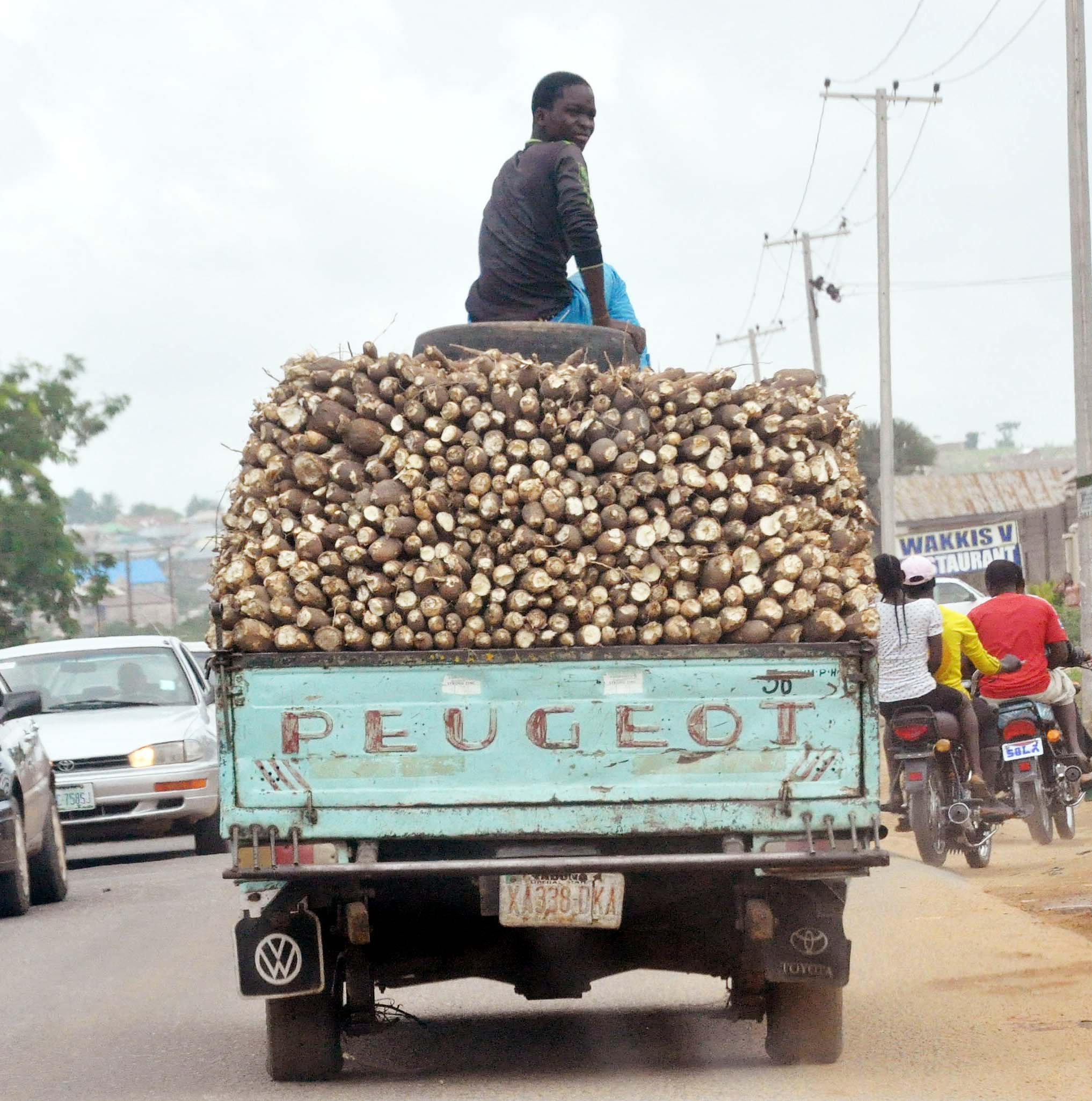[ad_1]

Commissioners of agriculture in Nigeria’s cassava growing belt have declared weeds as major drivers of low yield in cassava and the main constraint limiting the competitiveness of cassava farmers in the country.
The declaration was made in a communique signed by 14 commissioners of agriculture and issued at the 2018 Annual Review & Work Planning Meeting of the IITA Cassava Weed Management Project with the theme: “(Unveiling of new Technologies for Weed Control in Cassava Farming Systems),” in Ibadan.
Dr Kenton Dashiell, Deputy Director General, Partnerships for Delivery at IITA said the declaration was a step in the right direction.
“The first step to solving a problem is identifying and recognizing that you have a problem,” he said.
Though Nigeria is the world’s largest producer of cassava, the yield of cassava is low with FAO reporting a national average for Nigeria of 9.1 tons per ha compared to Asian countries where yields are more than twice Nigeria’s national average. Consequently, Nigerian cassava farmers can’t compete with their counterparts in Asia and Latin America.
The commissioners noted that to change the cassava narrative, there was the urgent need for collaborative efforts with the International Institute of Tropical Agriculture (IITA) Cassava Weed Management project, Federal Government, State Governments, the Private sector, national research institutes, universities, and other stakeholders.
Mr Monday Osaigbovo, Commissioner for Agriculture for Edo State, stated that it was high time attention was given to weed control.
“If we do nothing to address weeds, we won’t be able to transform cassava in the country,” he said.
They further observed that “among the cost variables to cassava production, weeds control takes 50 – 80 per cent of labour budget. A do-nothing approach to weed management in cassava ends up being a disaster with farmers losing almost everything.
“Over the last four years, the IITA Cassava Weed Management Project with donor support from the Bill & Melinda Gates Foundation has developed innovative packages to control weeds in cassava. Implementation partners include the National Root Crops Research Institute (NRCRI), Umudike; the University of Agriculture, Makurdi; and the Federal University of Agriculture, Abeokuta. Other partners are the state Agricultural Development Programs (ADPs), government representatives, international cassava scientists, and the private sector.”
Lawrence Kent, Senior Program Manager with the Gates Foundation noted that poor weed control is a major factor affecting the yield of cassava.
Results presented by the Project Leader of the IITA Cassava Weed Management Project, Dr Alfred Dixon, showed that by switching to the innovative packaged developed by the Project, Nigeria farmers could record more than 20 tons per ha, up from 9 tons per ha being reported by FAO as Nigeria’s national average.
[ad_2]
Source link
